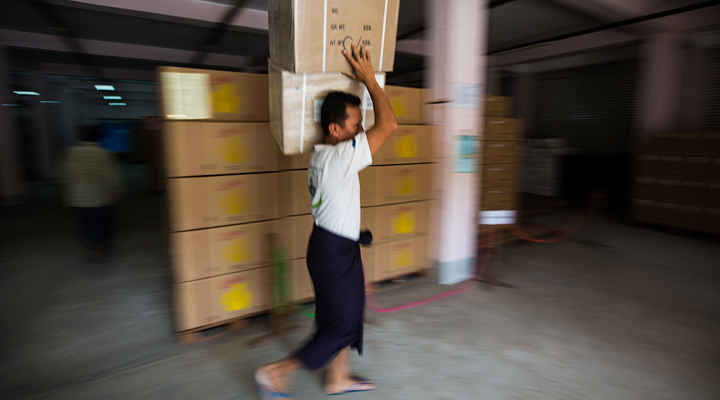This post gives an update on the Containment of Artemisinin Resistance in Eastern Myanmar project, which is being carried out by Population Services International (PSI) and was recommended to us by the Gates Foundation. We contributed to this project as part of our effort to learn from major foundations by co-funding projects with them. Note: This update reflects the progress of the project as of September 2012. Information on recent progress of this project is forthcoming.
Summary
In August 2012, Good Ventures made a $1 million grant to PSI Myanmar to support the Containment of Artemisinin Resistance in Eastern Myanmar project, which is primarily funded by the UK Department for International Development (DFID) and the Gates Foundation. Our last update (published in September 2012 by GiveWell) laid out this project's plans for implementation, monitoring and evaluation, and room for more funding. This page summarizes major project developments through September 2012. This project aims to increase use of artemisinin-based combination therapy (ACT) to treat malaria and reduce the use of artemisinin-based monotherapy (AMT) in order to prevent the development of drug resistance. The project has progressed slower than originally anticipated due to multiple factors discussed below, though project progress appears to have accelerated toward the end of 2012, and we don't see the speed of progress as a cause for concern at this time. We are not yet in a position to report on the project's likelihood of achieving its goals.
Project progress
In the first half of 2012, the project made slower progress than originally anticipated in the project plan, primarily due to:
- Delayed signing of a memorandum of understanding with the Government of Myanmar. The memorandum of understanding has now been signed.[1]
- PSI replaced its country representative in Myanmar in the summer of 2012.[2]
We do not see either of these issues as cause for concern. In the second half of 2012, PSI made more progress, including packaging and selling the first batches of subsidized ACT to its partner company,[3]
PSI convened a meeting in August 2012 that resulted in a ban of the alternative AMT.[6]
Room for more funding
When Good Ventures provided funding to this project in August 2012, we believed that it had significant room for more funding. We thought that the project needed funding to meet its goals and without additional funding it would fall short. Throughout the course of 2012, we learned that PSI's future financial needs for this project could not be projected with sufficient precision to know whether or not it had needed (or would need) additional funds.[7]
Sources
We relied on PSI Myanmar's progress report form, prepared for the Gates Foundation and other donors in December 2012 and covering progress through September 2012. We do not have permission to post this document publicly.
More recently, we learned that DFID has published an annual review of the project.


